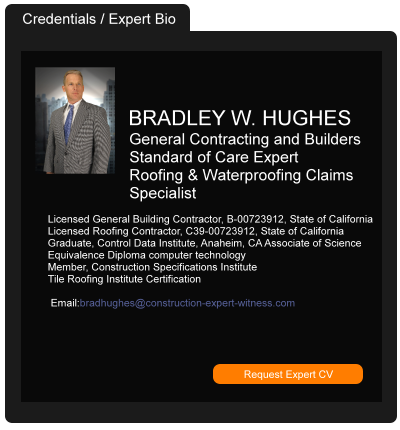Washington Builders Right To Repair Current Law Summary:
Current Law Summary: (SB 5536) The legislature passed a contractor protection bill that reduces contractors' exposure to lawsuits to six years from 12, and gives builders seven "affirmative defenses" to counter defect complaints from homeowners. Claimant must provide notice no later than 45 days before filing action; within 21 days of notice of claim, "construction professional" must serve response; claimant must accept or reject inspection proposal or settlement offer within 30 days; within 14 days following inspection, construction pro must serve written offer to remedy/compromise/settle; claimant can reject all offers; statutes of limitations are tolled until 60 days after period of time during which filing of action is barred under section 3 of the act. This law applies to single-family dwellings and condos.
Building Expert Contractors Licensing
Guidelines Seattle Washington
A license is required for plumbing, and electrical trades. Businesses must register with the Secretary of State.
Association Directory
Local # 4955
335 116th Ave SE
Bellevue, WA 98004
http://www.masterbuildersinfo.com
Seattle Washington Building Expert 10/ 10
Home Builders Association of Kitsap County
Local # 4944
5251 Auto Ctr Way
Bremerton, WA 98312
http://www.kitsaphba.com
Seattle Washington Building Expert 10/ 10
Home Builders Association of Spokane
Local # 4966
5813 E 4th Ave Ste 201
Spokane, WA 99212
http://www.shba.com
Seattle Washington Building Expert 10/ 10
Home Builders Association of North Central
Local # 4957
PO Box 2065
Wenatchee, WA 98801
http://www.nchba.cc
Seattle Washington Building Expert 10/ 10
MBuilders Association of Pierce County
Local # 4977
PO Box 1913 Suite 301
Tacoma, WA 98401
http://www.mbapierce.com
Seattle Washington Building Expert 10/ 10
North Peninsula Builders Association
Local # 4927
PO Box 748
Port Angeles, WA 98362
Seattle Washington Building Expert 10/ 10
Jefferson County Home Builders Association
Local # 4947
PO Box 1399
Port Hadlock, WA 98339
http://www.jeffcohomebuilders.com
Seattle Washington Building Expert 10/ 10
Building Expert News and Information
For Seattle Washington
Millennials Want Houses, Just Like Everybody Else
Lawsuits over Roof Dropped
Facebook Posts “Not Relevant” Rules Florida Appeals Court
“Source of Duty,” Tort, and Contract, Oh My!
See the Stories That Drew the Most Readers to ENR.com in 2023
The Future of Construction Work with Mark Ehrlich
Cybersecurity “Flash” Warning for Construction and Manufacturing Businesses
Antidiscrimination Clause Required in Public Works and Goods and Services Contracts –Effective January 1, 2024
Quick Note: COVID-19 Claim – Proving Causation
Pa. Contractor Pleads No Contest to Prevailing-Wage Charges, Pays Workers $20.7M
Hawaii Supreme Court Construes Designated Premises Endorsement In Insured's Favor
Traub Lieberman Attorneys Jessica Burtnett and Jessica Kull Obtain Dismissal of Claim Against Insurance Producer Based Upon Statute of Limitations
Real Estate & Construction News Roundup (10/23/24) – Construction Backlog Rebounds, Real Estate Sustainability Grows, and Split Incentive Gap Remains Building Decarbonizing Barrier
FDOT Races to Re-Open Storm-Damaged Pensacola Bridge
With VA Mechanic’s Liens Sometimes “Substantial Compliance” is Enough (but don’t count on it) [UPDATE]
ASCE Statement on Passing of Senator Dianne Feinstein
No Coverage for Tenant's Breach of Contract Claims
Commonwealth Court Holds That Award of Attorney's Fees and Penalties is Mandatory Under the Procurement Code Upon a Finding of Bad Faith
Real Estate & Construction News Roundup (1/10/24) – New Type of Nuclear Reactor, Big Money Surrounding Sports Stadiums, and Positivity from Fannie Mae’s Monthly Consumer Survey
Construction Law Alert: A Specialty License May Not Be Required If Work Covered By Another License
Florida Project Could Help Address Runoff, Algae Blooms
Winter COVID-19 Relief Bill: Overview of Key Provisions
ASCE Statement on Senate Passage Of Infrastructure Investment and Jobs Act
Spotting Problem Projects
Behavioral Science Meets Construction: Insights from Whistle Rewards
Kiewit Hired as EPC for Fire-Damaged Freeport Gas Terminal Fix
Safer Schools Rendered Unsafe Due to Construction Defects
No Conflict in Successive Representation of a Closely-Held Company and Its Insiders Where Insiders Already Possess Company’s Confidential Information
North Carolina Soil & Groundwater Case to be Heard by U.S. Supreme Court
Regional US Airports Are Back After Years of Decay
Reminder: Pay if Paid Not All Encompassing (but Could it be?)
Documentation Important for Defending Construction Defect Claims
Damage to Plaintiffs' Home Caused By Unmoored Boats Survives Surface Water Exclusion
Four Things Construction Professionals Need to Know About Asbestos
Construction Termination Issues Part 4: What to Do When They Want to Fire You, the Architect or Engineer
Seabold Construction Ties Demise to Dispute with Real Estate Developer
Substituting Materials and Failure to Comply with Contractual Requirements
The Need to Be Specific and Precise in Drafting Settling Agreements
Fungi, Wet Rot, Dry Rot and "Virus": One of These Things is Not Like the Other
Rhode Island Closes One Bridge and May Have Burned Others with Ensuing Lawsuit
Orion Group Holdings Honored with Leadership in Safety Award
What Should Business Owners Do If a Customer Won’t Pay
The Risks and Rewards of Sustainable Building Design
Insurer's Daubert Challenge to Insured's Expert Partially Successful
After Pittsburgh Bridge Collapse, Fast-Rising Replacement Emerges
Renovation Contractors: Be Careful How You Disclose Your Projects
White House’s New Draft Guidance Limiting NEPA Review of Greenhouse Gas Impacts Is Not So New or Limiting
MDL for Claims Against Manufacturers and Distributors of PFAS-Containing AFFFs Focuses Attention on Key Issues
New Jersey Supreme Court Hears Insurers’ Bid to Overturn a $400M Decision
Attention Contractors: U.S. Department of Labor Issues Guidance on Avoiding Discrimination When Using AI in Hiring


































































